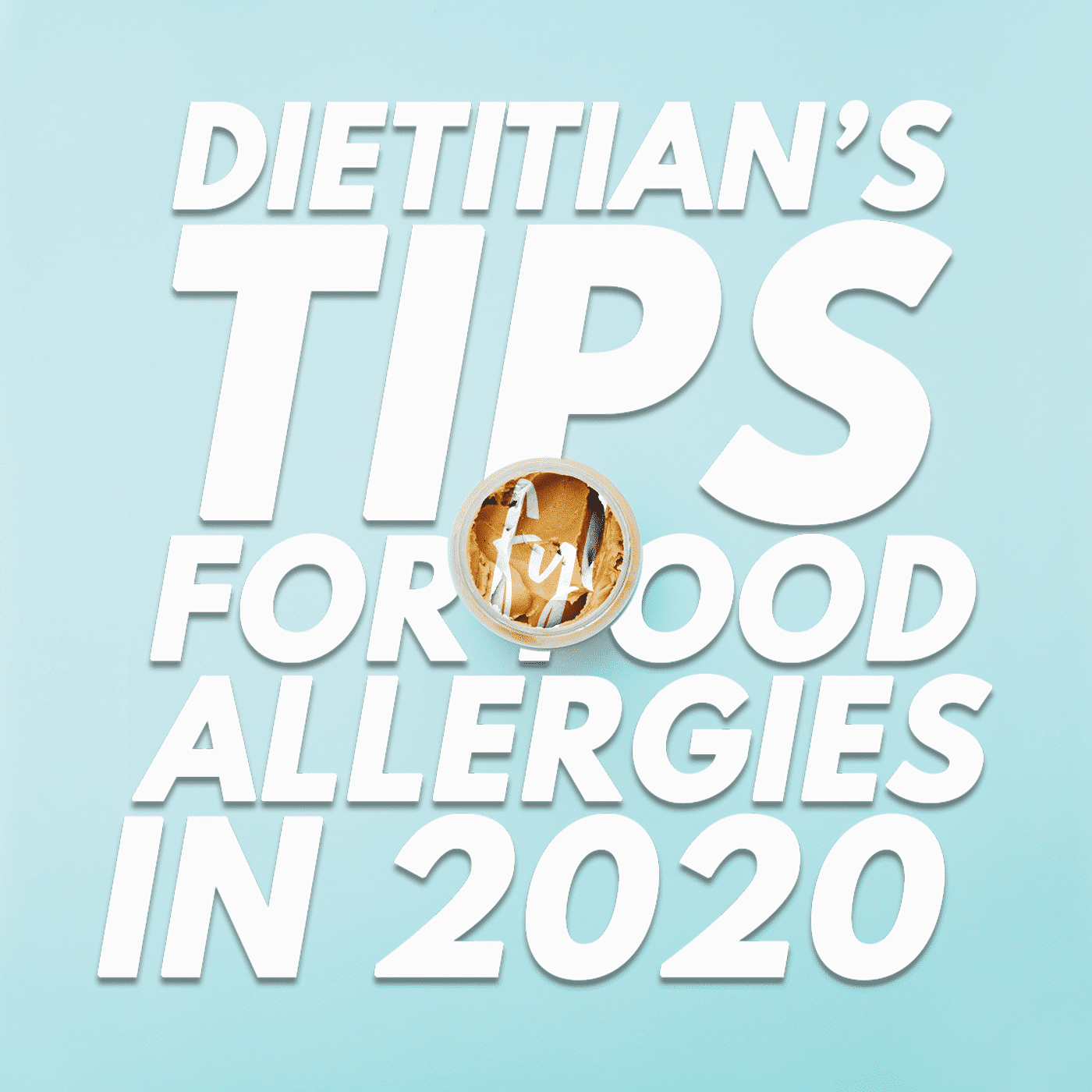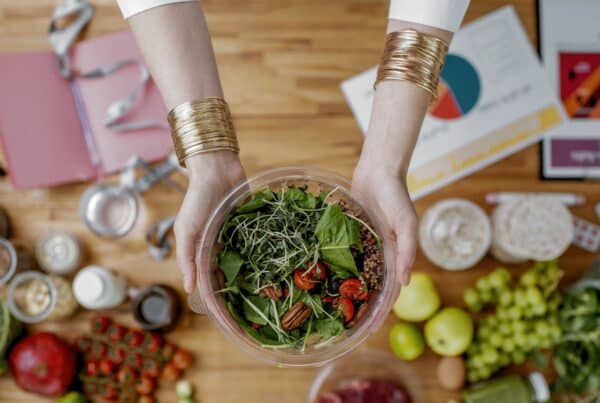Food allergies are on the rise, affecting between 5-10% of children and 2-4% of adults living in Australia and New Zealand (Allergy, 2019). What’s worse is that they can cause very serious reactions and can even be life-threatening in some cases, which can make eating away from home a daunting experience for allergy sufferers or parents of children with allergies.
To cap off our Food Allergy Week spotlight, Fuel Your Life is here to give you the rundown on food allergies in 2020 and share our advice on eating out to help ensure a less stressful, more enjoyable experience!
So, What is a Food Allergy?
A food allergy is an abnormal reaction to food by our immune system. Our immune systems identify the allergen as a ‘threat’ which leads to the reaction symptoms. Allergies are defined as either IgE mediated or non-IgE mediated:
- IgE Mediated Food Allergy: involves a rapid reaction to food, often occurring within 30 minutes of eating the allergen and can result in mild to severe symptoms including hives, swelling of the lips and tongue and can lead to anaphylaxis which can cause death. This type of allergy may be diagnosed through a skin prick or blood test.
- Non-IgE Mediated Food Allergy: involves a delayed response to an allergen and symptoms typically involve skin or gastrointestinal symptoms such as altered bowels, vomiting and eczema. This type of allergy is not life-threatening. There are no tests to diagnose this form of allergy, however, can be identified through an elimination and reintroduction diet undertaken by a trained clinician (ASCIA, 2013).
A food allergy is different from a food intolerance, which does not involve the immune system. In children, most food allergies may be outgrown and are not severe. Allergies to foods such as peanuts, tree nuts, seeds and seafood, are more likely to be lifelong. It is essential that you visit your GP for a referral to an allergist following a suspected allergic reaction, to diagnose your allergy (Allergy, 2019).
So now we know what a food allergy is, which allergies are most common in 2020?
What Are the Most Common Food Allergies?
The most common food allergies include:
- Egg
- Cow’s milk (dairy)
- Peanut
- Tree nuts
- Sesame
- Soy
- Wheat
- Fish
- Other seafood such as shellfish
Although these are the most common, almost any food can cause an allergic reaction, even fruits (Allergy, 2019)!
How are Food Allergies Managed?
If you are diagnosed with a life-threatening allergy, avoidance of the allergen is essential, paired with regular testing, as guided by your allergist, to assess change in your tolerance over time. If diagnosed with a non-IgE mediated allergy, avoidance is recommended and a food challenge may be undertaken after 12 months, to assess change in tolerance and to determine if the allergy has resolved (ASCIA, 2013).
Does this mean eating out is something best avoided to limit the risk of an allergic reaction? Certainly not! So, what can you do to alleviate your fears and make eating out less stressful?
Top Tips for Eating out With Food Allergies
Eating out with food allergies can be daunting for some, however, we have created some of our ‘top tips’ to assist you in feeling confident when eating away from home:
- Plan ahead by calling the restaurant in advance and look up their menu online to see if they can cater to you.
- Alert the wait staff of your allergy when ordering and ask them to identify allergy-friendly dishes and to alert the kitchen staff of your allergy when preparing your meal.
- Identify cuisines which may be safer for you: For example, certain Asian cuisines use nuts and sesame in their cooking. Call ahead to determine if they can safely cater to your allergy.
- Keep your meal choice simple: Meals such as grilled steak or fish with veggies or salad can be a safer option, compared to mixed meals where ingredients may be harder to identify.
- Watch out for hidden allergens disguised in sauces, marinades and other products with hidden ingredients e.g. pesto which often contains tree nuts; bread, pastries or cakes with a shine, which may use milk or egg as a glaze.
- Beware of cross-contamination through shared workspaces, kitchen tools and cooking utensils, including shared oil, as this can pose a risk. Double-check with the staff to ensure your meal is safely prepared to minimise cross-contamination.
- Do not be afraid to go elsewhere if you cannot get a guarantee or are uncertain.
- Double-check if you are unsure that your food is allergen-free when your meal arrives. There is no harm in checking!
- Be prepared by bringing your EpiPen and antihistamine medication just in case!
So, you have an allergy, what other considerations should be made when choosing where to eat?
Common Allergies and Where To Find Them
For those with allergies to:
- Nuts: Asian, Indian and African cuisines are best avoided due to the use of nuts. Be conscious of sauces, marinades and baked goods such as cakes which may have hidden nuts.
- Fish or shellfish: Asian and seafood restaurants may be of higher risk due to frequent use of seafood as a main dish, or in sauces and marinades.
- Egg: Eggs are widely used in sauces, coating of foods and in baked goods. Vegan restaurants and vegan options, or grilled meats with no coating and veggies may be a safer selection on menus.
- Dairy: is often hidden in sauces, used when cooking (e.g. butter) or in dressings. Asian cuisines typically use less dairy, while vegan options will be a safe bet.
- Soy: Asian cuisines are high risk due to their use in sauces and marinades. Vegetarian meals also typically use soybeans or tofu (Australian Allergy Centre, 2015).
Although these are typical of a higher risk, always call a restaurant beforehand as they may be able to cater to you. It is also essential that you notify the wait staff of your allergy, even if you are confident that the dish you are ordering is allergen-free.
Allergy-Friendly Restaurants in Australia
Victoria
- Foddies Fructose Friendly Café and Food Store, Camberwell: is a café and ready-made meal service, catering to a range of dietary requirements, including dairy-free, egg-free, vegetarian, vegan, wheat-free, soy-free and food intolerances
- Mr Nice Guy, Ascot Vale: providing dairy-free, egg-free, soy-free and gluten-free bakery good options, catering to many dietary requirements!
New South Wales
- Rowie’s Cakes, Alexandria: sell an array of delicious baked goods which cater to those with dairy, nut, egg, wheat and soy allergies.
Queensland
- Madame Wu, Brisbane: caters for coeliacs, in addition to offering many nut-free, dairy-free, vegetarian and vegan options
- Chu The Phat, South Brisbane: offers a gluten-free menu, with nut-free, dairy-free, vegetarian and vegan options
- Marie Anita’s Gluten Free Health Café and Bakery: caters to those requiring gluten-free, vegan and vegetarian options.
Northern Territory
- The Precinct Tavern, Darwin: cater to individual allergies and intolerances, just alert their wait staff!
- Pop Rocket Café / Finch Cafe, both located in Katherine: both cafés offer allergy-friendly options including vegetarian, vegan and gluten-free foods items.
Western Australia
- Strange Grains, Leederville: have many award-winning cakes and breads free from wheat, gluten, soy, eggs and dairy!
- Mother, Fremantle: options include many delicious wheat and dairy-free options.
- Natures Harvest, Cotteslowe: offer an allergy-friendly menu, including vegan, vegetarian, wheat and dairy-free options. They can also accommodate to nut, egg and dairy allergies.
South Australia
- Gelatissimo, Adelaide: looking for some delicious allergy-friendly gelato? Gelatissimo offer vegan, dairy-free and nut allergy-friendly options!
- Nutrition Republic, Adelaide: have a coeliac friendly menu, offering other options including dairy-free and vegan options.
- The Little Fig, Melrose Park Adelaide: host their very own EpiPen station and offer a number of allergy-friendly options including vegetarian, dairy-free and wheat-free meals!
Tasmania
- Kings Bridge Bar and Restaurant, Launceston: are happy to accommodate allergies where possible, offering a range of dairy-free, vegetarian, vegan and wheat-free options on their menu
- Straight Up Coffee and Food, Hobart: have dairy-free and vegan options and a dedicated gluten-free facility
- Pizza Capers, Launceston have experience dealing with allergies, offering dairy-free, vegetarian and gluten-free options.
Food allergies need to be taken seriously, but with the help of the above tips and advice of your health professionals, daily tasks such as eating out can be done with ease! If you suffer from an allergy and need help navigating your symptoms, get in contact with one of our amazing dietitians today!







